Pytheas the enigmatic traveller of space and time
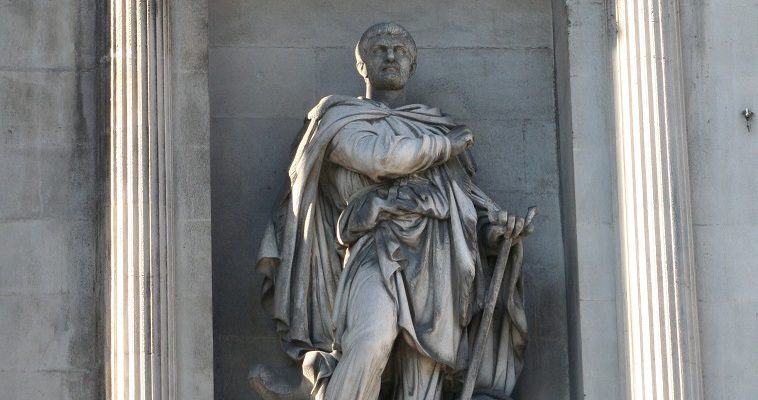
As we know, the Greeks, to this day, have left their mark on southern Galatia, today’s Mediterranean France, to remind the modern French nation of their cultural contribution. This tradition has been officially adopted by the Municipality of Marseille who are well aware of their ancient origin, culture, and roots, as well as the value of Euxenus, Pytheas, and Euthymenes. It is generally considered that people, both individually and collectively, conform to various necessities and deeper needs for survival, expansion, and more power, as well as primordial needs for transportation, search and risk, meditation, travel, relocation, and emigration. It seems that man and exploration, spatial or spiritual, are innate and structural elements which operate in a perpetual process of life, evolution, and improvement.
Historically, for millennia, all the people of the Mediterranean organized and carried out voyages for exploration, campaigns, and missions for trade, investments, warfare, science, and piracy, as well as developed large scale plans for colonization and settlement within and around the Mediterranean Sea and further, beyond Gibraltar, in the Atlantic Ocean. It is believed that they moved north to the Cassiterides or Tin Islands (the British Isles, Ireland, etc), perhaps even further north, reaching the edge of the North Pole, but also to the south, around Africa. Even still, many believe, not without reason, that some of the trade and exploration expeditions of the people in the Mediterranean may have reached way further, like Iceland and Greenland, or even America.
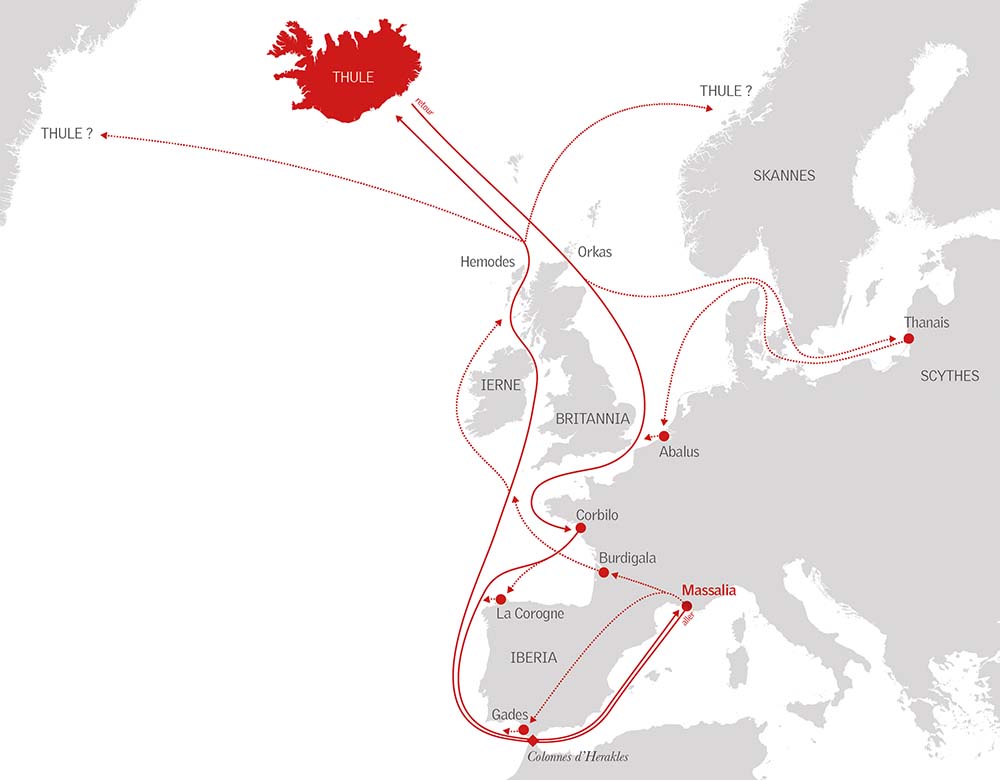
Through a journey of millennia, all the previous substratum is concentrated on the great efforts of the Phoenicians, Carthaginians, Etruscans, and Greeks, since now they are all associated with the rise and domination of the Persian Empire which created a new era, not only in central Asia, but also in Asia Minor, the Middle East, the Balkans, North Africa, and the entire Mediterranean, resulting in most Greek city-states in Asia Minor being faced with significant problems and dilemmas.
Consequently, they had to choose between their submission to the Persian Empire, albeit enjoying local and internal autonomy, though on burdensome terms, and having to abandon the region for good, not tolerating the Persian rule. However, the inhabitants of Phocaea, founded mainly by ancient Ionian tribes of Athens (9th century BC), chose to evacuate permanently after residing in Asia Minor for about three centuries (539 BC). Eventually, under the guidance of the Delphi Oracle and after many adventures and conflicts with the locals, and especially the Carthaginians, they reached Corsica and the Mediterranean coasts of Celtic Galatia in southern France, present-day Marseilles, an isolated and naturally protected area, ideal for colonization and settling.
According to tradition and the local legends transmitted through the centuries, it seems that the leader of the Greek colonial fleet was Euxeneus (or, according to another version, Simos and Protis), who, after a long adventurous journey, sailed to the port of Lacydon, present-day Marseilles, the territory of the local king Nann (or Nanos), inhabited by indigenous Ligurians/Segovrigs (Celtic tribes), who are considered to have probably already encountered Phoenicians, Etruscans, Iberians, and Greek merchants and explorers. According to the legend, the day Euxenus (and/or Protis as his co-leader) and the Ionian settlers arrived in the region requesting to settle permanently, coincided with the day that the king was occupied with the preparations for the wedding of his daughter, Gyptis, and so, unexpectedly, the Greeks were invited to the event (among the other suitors). Euxenus (or Protis) was the one chosen by King Nann’s daughter to become her husband. The king offered him, as a gift, a stretch of land near the estuary of the Rhone, creating a new city-state, the Ionian Marseilles (600 BC).
Thus, Marseilles, which, at its peak, was the hub of famous oceanographers, over the centuries and until its alliance/subjugation to the Roman Empire (1st century AD), developed into an important naval and commercial centre of the Mediterranean, its influence reaching as far as Celtic, Liguria, and Iberia, establishing colonies and trading posts while becoming a major artery exchanging elements of culture and civilization, as well as transmitting the Greek civilization to the interior of less civilized and cultured nations and regions, in southern Galatia and the western coast of the Iberian Peninsula.
Within this framework, and probably at the same period of time, the seafarers, explorers, and geographers of Marseilles, Pytheas, and Euthymenes, traveled, one to the North, Western Europe, and Thule, perhaps even the Baltic, Scandinavia, and as far as the North Pole, the other to the South, following the African coastline, reaching the estuary of the Niger, or more likely, this of Senegal. His discoveries are described in a well-known book, titled Periplus, excerpts of which are preserved in references by other authors.
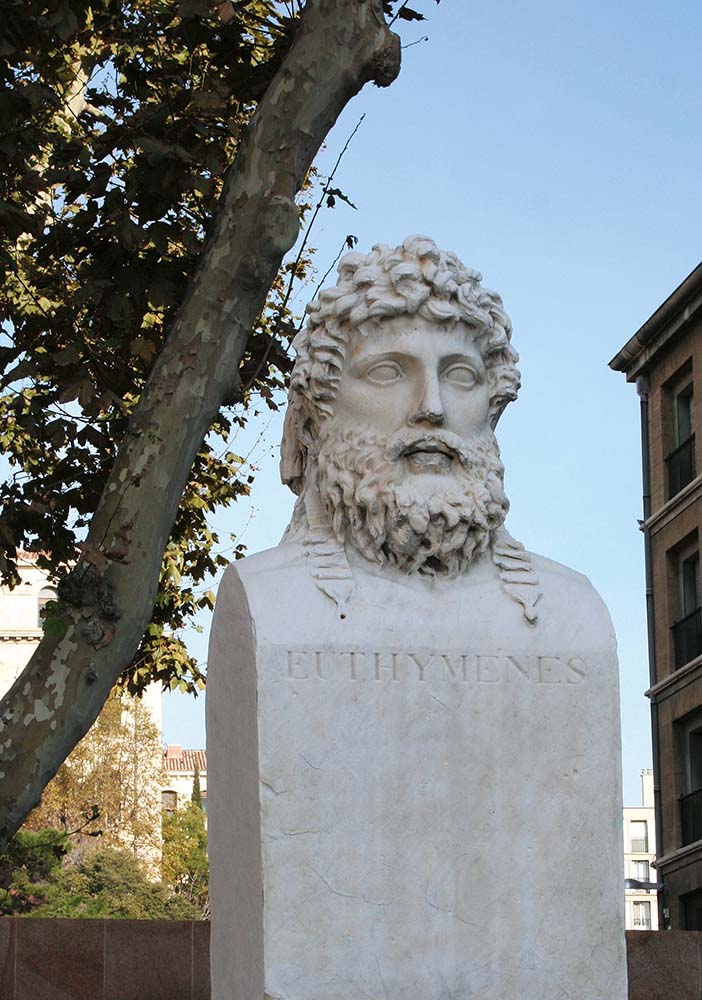
For Pytheas, however, there is little biographical information known, except for his voyage or voyages beyond the Mediterranean (330-320 BC), which are known through his astonishing descriptions and observations recorded in “On the Ocean” and “Earth Circumnavigation” but unfortunately, few excerpts were saved by Greek and Roman writers, which too, centuries later, were challenged by subsequent ones (Polybius and Strabo), who considered him a “storyteller”, as according to them, such voyages were impossible with the means of his era.
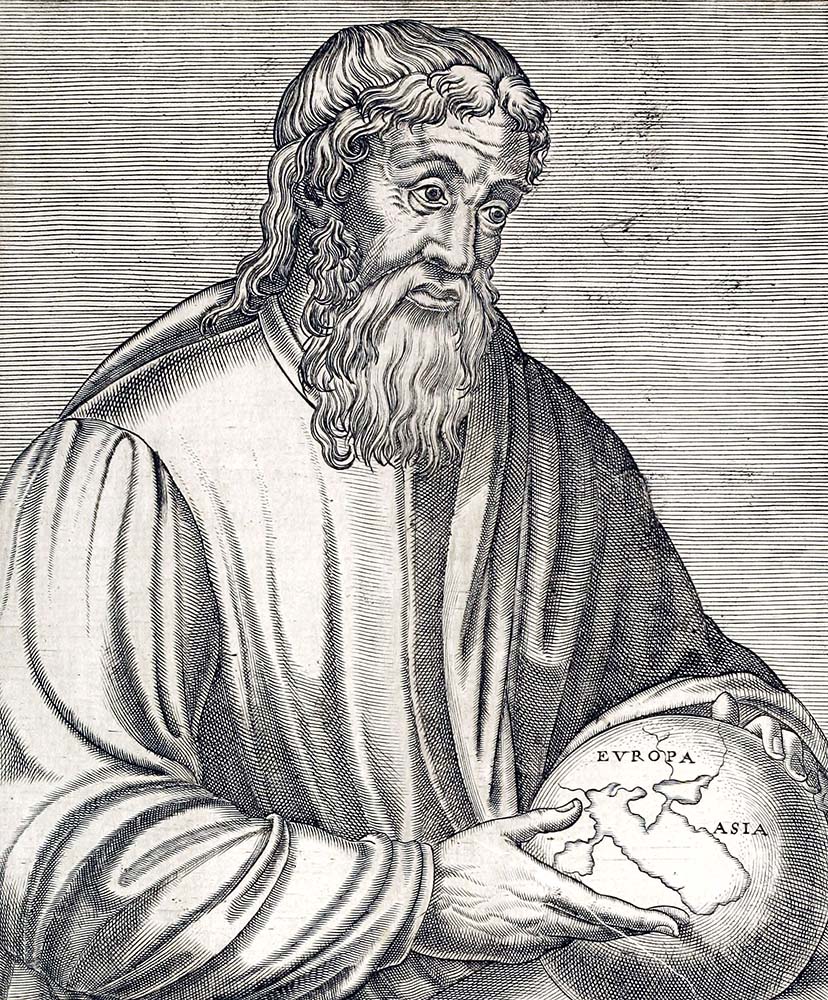
However, according to historical descriptions, Pytheas of Massalia, the explorer and geographer (4th BC) whose expeditions coincide with the campaign of Alexander the Great in the East, even surpasses the travels of the Argonauts, Hercules, Dionysus and even Odysseus. Although the route that Pytheas followed in attempting his daring voyage for that time is not exactly known, it is most likely that he departed in his ship “Artemis” from Marseilles, crossed the Pillars of Hercules, nowadays the Strait of Gibraltar, and navigated upwards along the coast of Spain, explored the microneses of the Atlantic in western France, proceeded to the English Channel and then sailed around Britain. Many historians believe that he reached as far as present-day Iceland (the mythical Thule), sailed the Baltic and Scandinavian coasts navigating perhaps further north, reaching Land’s End the icy (thick) sea, and perhaps even further, thus gaining vast experience and knowledge of land and sea, beyond the inhabited and civilized world, that is the Mediterranean.
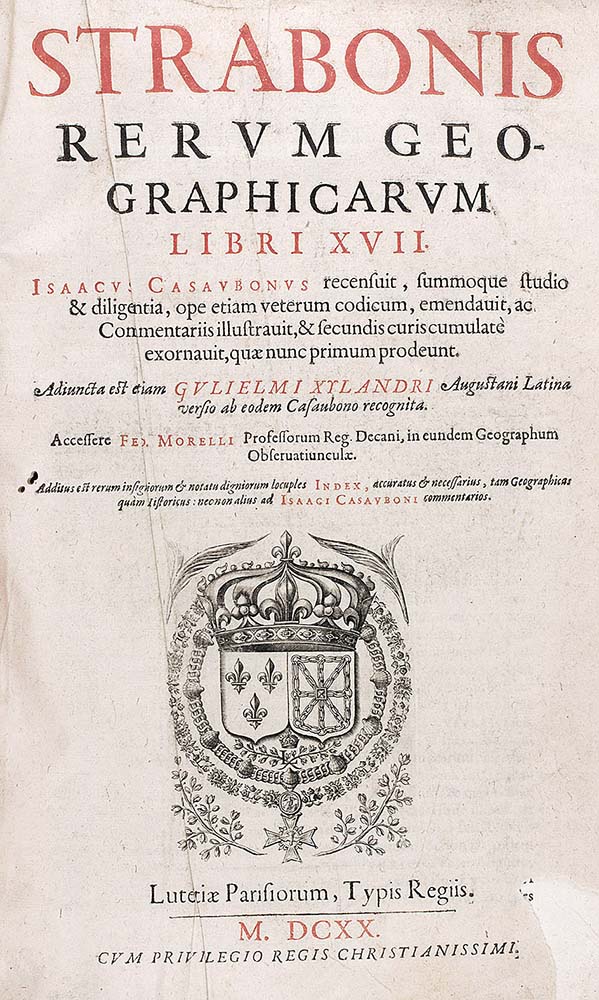
We are now certain that his travels were real, based on evidence: first, the Roman scholar Pliny the Elder in his encyclopedic book Naturalis Historia (about 400 yrs later), mentions in great detail his estimates of the tidal intensity on the coasts of Brittany through its rhythm, and, apparently had a very good theory to explain the tidal rhythms in relation to the Moon. And it is almost certain that its effect on the tides had already been known since the 4th century BC, thanks to Pytheas. To support his views, Pliny refers to specific passages in Pytheas’s book. We also have another narration of Pliny according to the testimonies of Pytheas, for the shorter duration of the day and the sunshine, depending on the season, when going north, to the North Pole and colder climates and waters, reports that he saw the sun rise immediately after sunset. In addition, it is proved by other historians that Pytheas discovered the concept of latitude and was the first to systemize it as it seems.
Today, and based on the aforementioned, the statues of Pytheas and Euthymenes stand proudly on their pedestals, facing the sea. Marseilles has honored them, alongside world history for being eminent and pioneering scientists, explorers, and geographers. Another Greek city, beyond the Greek core, highlighted and honored these “human gods”, its colonizers and founding fathers fairly, which means that some seek knowledge of their past in order to have a better understanding of their present and set high goals for their future.
The struggles and anxieties of the great seafarer, explorer, and scientist Pytheas, who traveled from the Mediterranean to the Atlantic, may have been challenged by some of his contemporaries and fellow tradesmen, but, eventually, Pytheas, the enigmatic traveler of space and time, appears to have managed to reach not only the borders of the known world in his era but also those of science.
What's Your Reaction?
Brigadier of the Greek Army – Analyst




